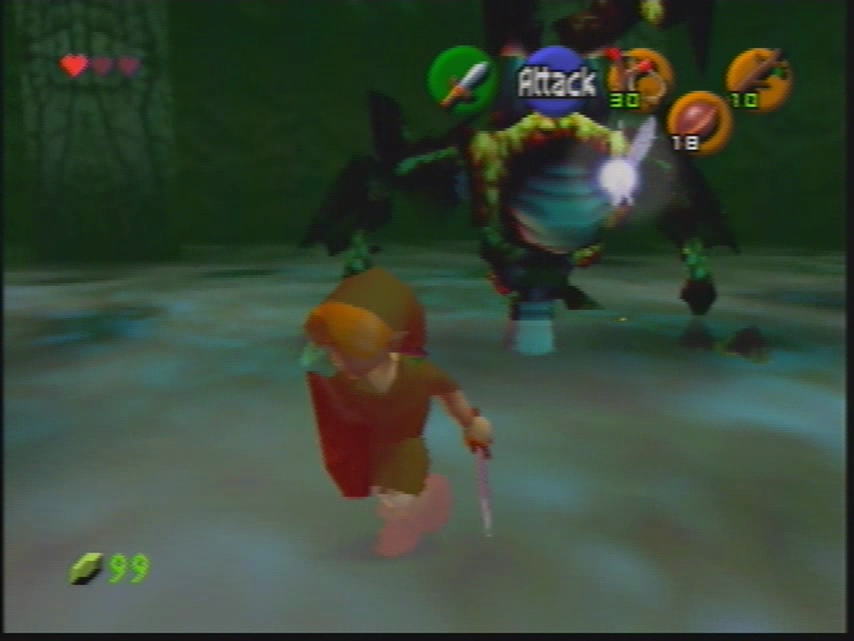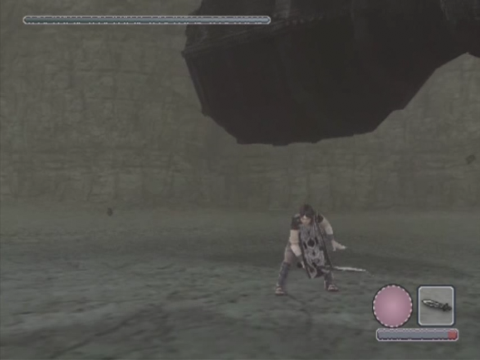Imminent Death
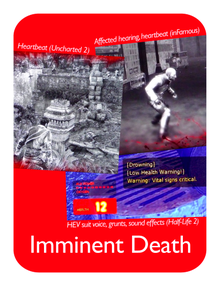
|

| |
| The card's front face | The card's back face |
Synopsis
| Urging a change of behaviour to avoid death. |
Relationships
Context:
Failure ![]() , Awareness
, Awareness ![]() , Emotional Script
, Emotional Script ![]() , Window of Opportunity
, Window of Opportunity ![]() .
.
Peers:
Death ![]() , Ouch!
, Ouch! ![]() .
.
May relate to:
Hurry Up! ![]() .
.
May use:
Heartbeat ![]() , Grunts
, Grunts ![]() , Affected Hearing
, Affected Hearing ![]() , Foley
, Foley ![]() , Sound Effects
, Sound Effects ![]() , Dialogue
, Dialogue ![]() .
.
Description
Many games implement Death through decrements in health as a result of repeated injury. Recovery may depend on self-administering some kind of remedy and/or spending time enough without taking damage. Moreover, recovery often comes at a cost, so it is inevitable to manage some level of injury. The problem is that players may lack the Awareness for imminence of Death and unwittingly (and avoidably) let the PC die.
Providing clear indicators of Imminent Death promotes Awareness for the need to adopt a behaviour that reverses the evolution towards Death. Furthermore, both health and death are concepts with profound semantics and prominent association to emotions and values. That, at least, calls for a meaningful signalling (Emotional Script).
Imminent Death is particularly relevant in the heat of an Engagement when the player may be deeply focused in other aspects of the conflict – timing, moves, tool selection, etc. – and attention is diverted from less evident health indicators.
Diegetic interpretations of Imminent Death are effective because they allow a direct understanding of the situation and they avoid the need to be attentive to some health monitor. Approaches include using the sound of the Heartbeat, which constitutes an evocative and powerful indication of risk, particularly when it becomes the dominant sound. Uneasy Breath or even Grunts are also commonly used.
Another diegetic approach is suggesting body collapse through the loss of basic perception. Namely, affecting global sound (Affected Hearing) as if senses became severely compromised is very indicative of the need to find a remediation for that condition. Moreover, the fact that the player no longer hears the diegetic world not only helps to understand how serious the case is but also, more relevantly, redirects the player's focus from the Engagement to the search for a remediation to the character’s health.
Examples
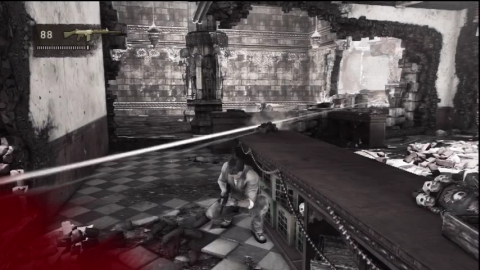  |
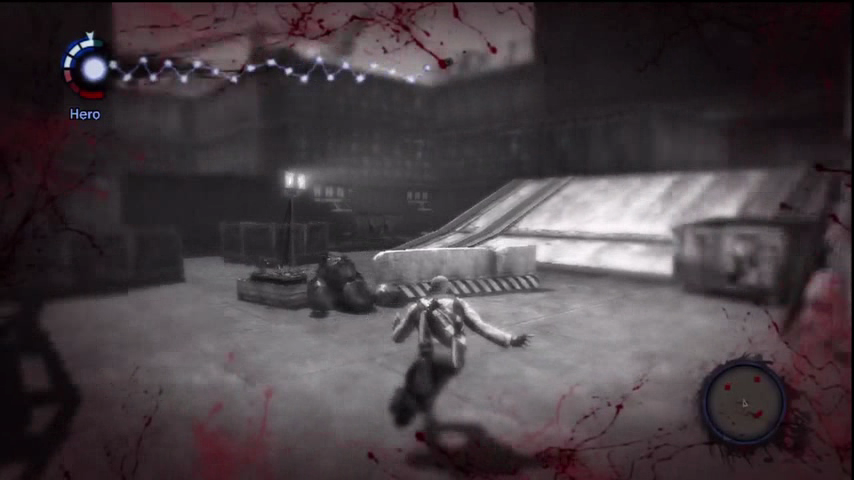  InFamous: In addition to blood depiction on top of the monochromatic vision, the Affected Hearing makes it difficult to perceive the surrounding sounds, and a very strong Heartbeat sound (as in the inner ears) dominates the senses. The remedy for Cole is to get away from the fight, get some cover until he recovers and eventually get back to the unfinished business.
|
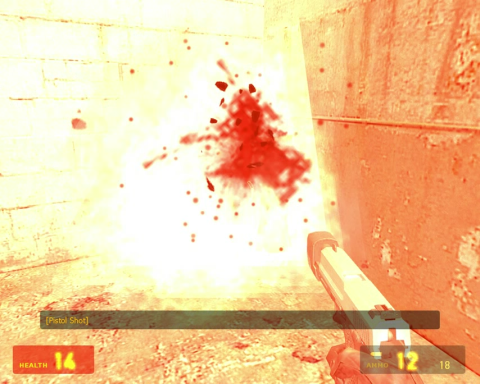  Half-Life 2: The "hazard suit" voice warns (Dialogue): "Vital signs critical"/"Seek medical attention" (health 25 or below) or "Emergency! User death imminent"/"Seek medical attention" (health 9 or below).
|
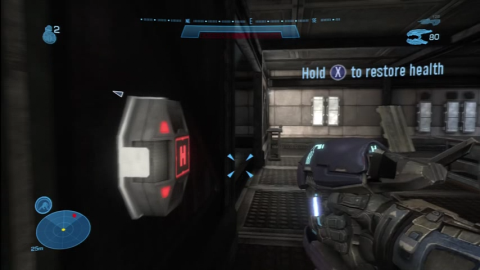  Halo: Reach: A very bass sound of Heartbeat (almost inaudible when using regular speakers) accompanies the critical health state.
|
External Resources
http://half-life.wikia.com/wiki/HEV_Suit
